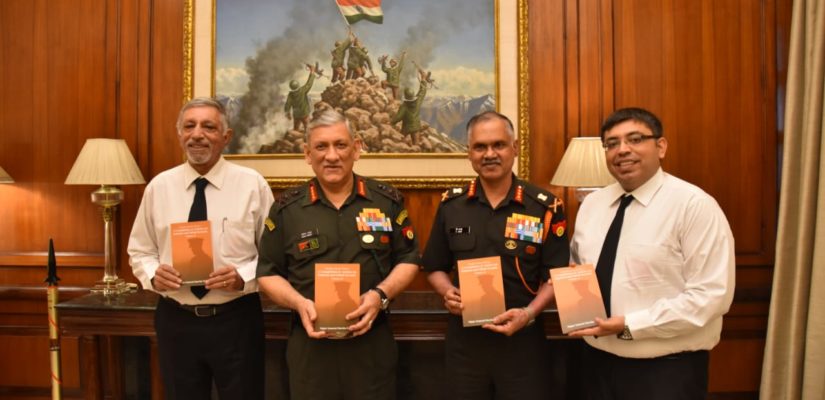
Application of national power against Pak (English Version) Rakshak News 28 Feb 19
http://www.rakshaknews.com/vishesh/use-of-nation-power-against-pakistan
Application of national power against Pak (English Version) Rakshak News 28 Feb 19
Imran Khan in a video message aimed at India stated that Pak is willing to investigate any information implicating them in the Pulwama attack. He also warned that Pak would retaliate in case India takes any offensive measures. Simultaneously, a minister of his government issued threats of employment of nuclear weapons.
In Afghanistan, the Pak ambassador made a remark stating that US-Taliban talks including future peace efforts would be in jeopardy in case of an Indian intervention. Pak in preparation for an attack has begun clearing its defences and warned hospitals for earmarking beds for casualties.
India responded immediately after the Pulwama attack. It removed Pak from the Most Favoured Nation’s (MFN) list and imposed 200% duty on all Pak products. This had an immediate impact. Pak cement, which was its main export to India was stopped and thousands of containers and trucks forced to return or stuck at Wagah.
Tomatoes being exported from India stopped, raising prices in Pak to about Rs 200 a Kg. The common Pakistani is now feeling the pinch. India has also announced stopping the flow of waters to Pakistan, of rivers under India, as per the Indus water treaty.
Pak has no response to the removal from MFN, as it has never granted a reciprocal status to India. It could also not comment on the stoppage of water as India was exploiting its share of the rivers. However, these actions have hit Pak hard.
Diplomatically, India has begun an offensive seeking to isolate Pak. It submitted a dossier to the Financial Action task Force, seeking to place Pak on the Black List. This has been pended for the moment, but Pak has been warned. The UN Security Council condemned the attack and named the JeM, already a terrorist organization as being responsible. Many nations joined in condemning the attack. The listing of Masood Azar as a global terrorist is still stages away. China remains the stumbling block.
Pak responded by placing restrictions on JeM and taking over its premises in Bahawalpur. How effective would this be and its impact on the JeM is yet to be known. It could only be cosmetic measures to satisfy the international community.
There were calls for a military action against Pak. It was needed as a deterrent and to convey the message that India would not sit quiet but act. This was done by the air force when it struck targets deep inside Pak, eliminating a known terrorist camp, killing over 200 terrorists. Pak denied the same and only accepted violation of their airspace. This gave them the option of not responding and adopting the diplomatic route to pressurize India. It would have suffered a setback, but this one action alone may never change Pak.
Realistically, India can only attempt to make it costly on Pak provided it applies a cohesive strategy utilizing all its elements of power in a coordinated manner. Even then there are restrictions on the success it may achieve. Diplomatically, Pakistan remains important to all major powers, hence isolation may never achieve the levels desired. The US needs Pak for Afghanistan, while China has deep investments in the country, hence cannot dump it.
Economically, Pak remains in doldrums, despite all promises made by its allies. The Saudi’s have signed a deal for investing USD 20 Billion. The investment is still some time away. Pak’s foreign exchange reserves continue to drop, leaving it with funds for just two months of imports. It needs IMF aid, an aspect which India can delay and ensure that the conditions imposed are tough. It can influence multinationals doing business with Pak to reduce their expenditures or would be impacted by business with India.
The recent attack on Iranian soldiers just prior to the visit of the Saudi Prince are indicators that Pak is now firmly in the Saudi camp and against Iran. The fact that the attack was launched to coincide with the visit of the Saudi Prince, attackers were Pak nationals and it was planned on their soil, is enough for India and Iran to join hands. This could add to problems of Pak on both its borders as also in its troubled western provinces.
No single action alone would force Pak to change its stance. It may have to be a coordinated application by the Indian government. The agencies of the government need to work in unison, seeking to hurt Pak in multiple ways to the extent that it is compelled to change its outlook. Only a military solution may be ineffective for the moment.